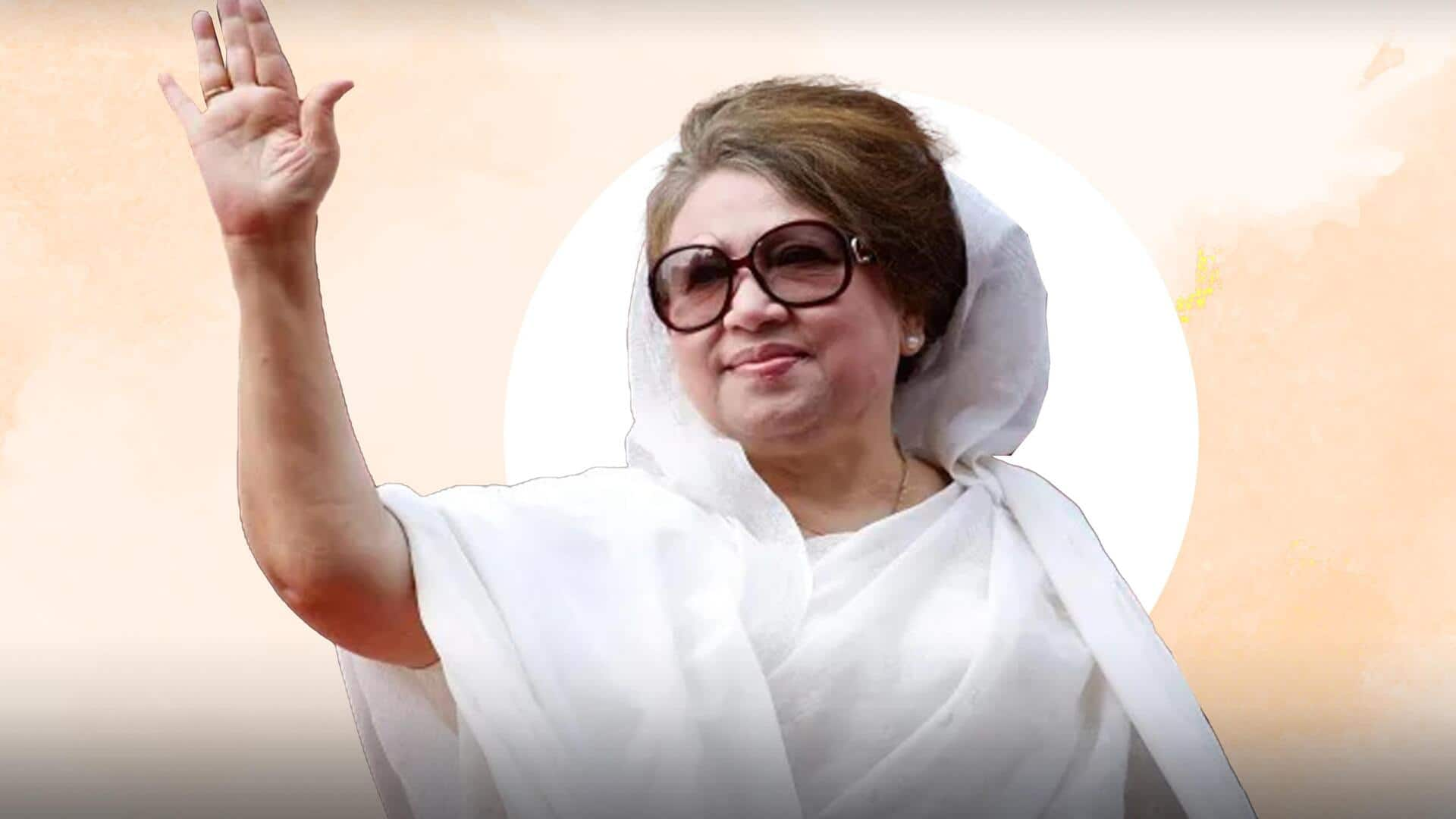
Bangladesh political unrest: Who's Khaleda Zia, ex-PM to be released
What's the story
Hours after Sheikh Hasina resigned and fled the country, Bangladeshi President Mohammed Shahabuddin ordered the release of jailed opposition leader and ex-Prime Minister Khaleda Zia. This decision was made in consultation with opposition members, reaching a consensus to free the Bangladesh Nationalist Party chairperson. The meeting included Army Chief General Waker-Uz-Zaman, the heads of the navy and air force, and senior leaders from opposition parties, including the BNP and Jamaat-e-Islami. Here's what we know about the former Bangladesh PM Zia.
Political history
Zia's political journey
Born on August 15, 1945, in Jalpaiguri, Bengal, Zia entered politics after the assassination of her husband, Ziaur Rahman. Rahman was the President of Bangladesh from 1977 to 1981 and founded the BNP in 1978. In 1991, Zia made history as Bangladesh's first female PM and the second woman to lead a Muslim-majority nation. She served another term from 2001 to 2006. Considered a strong opponent of Hasina, Zia is the leader of the main opposition party, the BNP.
Legal troubles
Corruption charges against Zia
Political unrest and violence led to the delay of the 2007 elections, resulting in a military takeover of the interim government. During this period, Zia and her two sons were accused of corruption. In 2018, she was found guilty and sentenced to a 17-year prison term. Now aged 78, Zia is hospitalized and often travels overseas for medical treatment. The rivalry between Zia and Hasina—often referred to as the "Battle of Begums"—has polarized Bangladesh politics for years.
Political unrest
Hasina's ouster amidst protests
Hasina was removed from her position as Prime Minister following months of large-scale protests that resulted in over 300 fatalities. After being given a 45-minute ultimatum by the Bangladesh Army, Hasina fled to India, where she is expected to remain until the United Kingdom grants her asylum. The UK government has not yet confirmed whether it will provide political asylum to the former Bangladeshi Prime Minister.
Ongoing turmoil
Bangladesh's political unrest
The student protest in Bangladesh—ongoing since July—began with calls to abolish civil service job quotas but has since evolved into a broader anti-government movement. The protests are rooted in a contentious quota system that allocates up to 30% of government jobs to the relatives of veterans from Bangladesh's 1971 independence war. Protesters argue that this system is discriminatory and favors former PM Hasina's Awami League party, calling for a merit-based system instead.